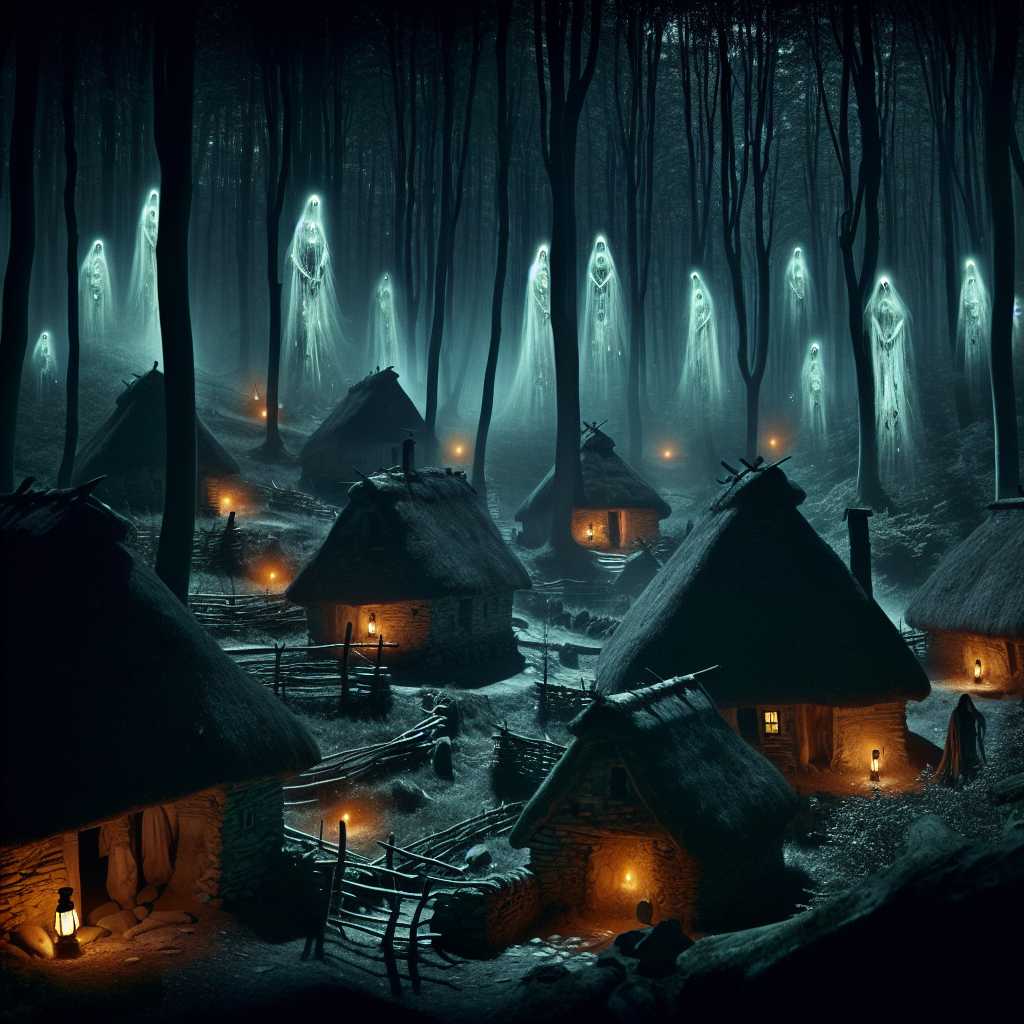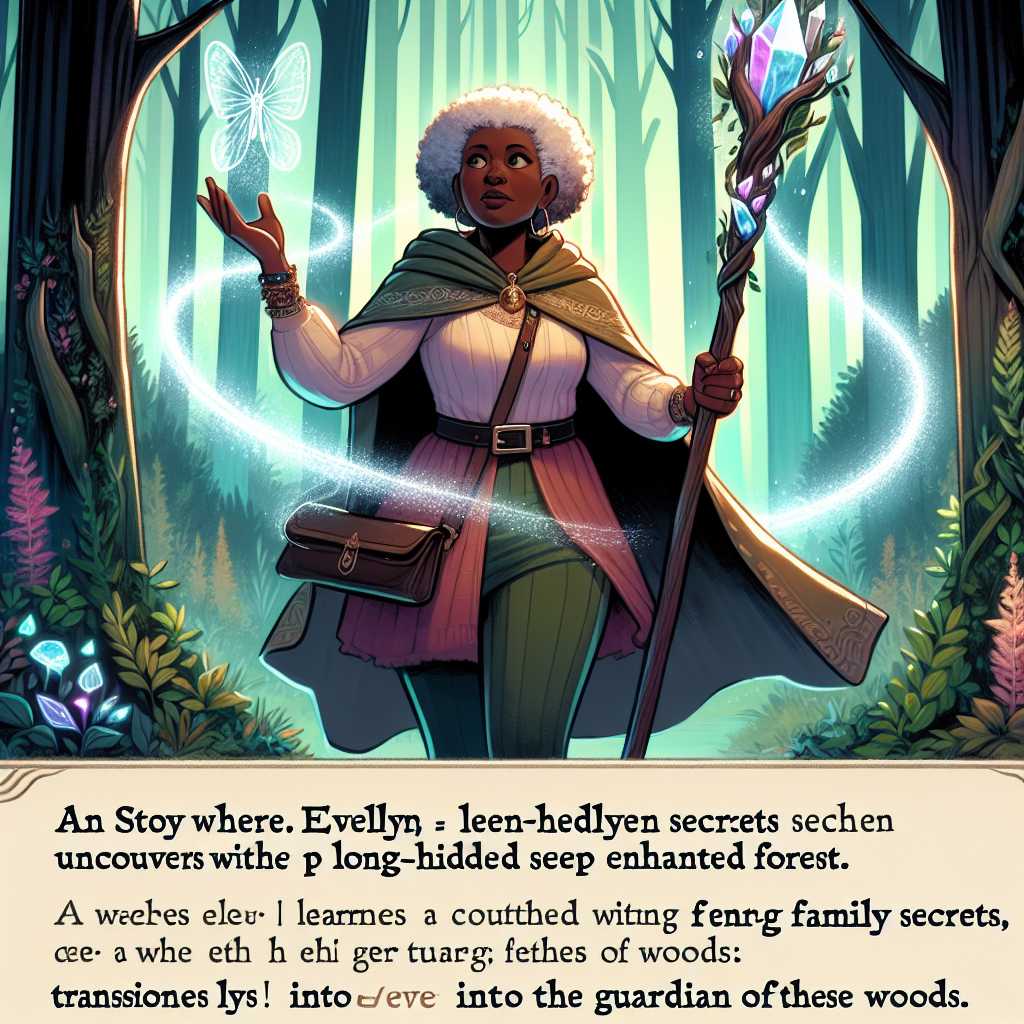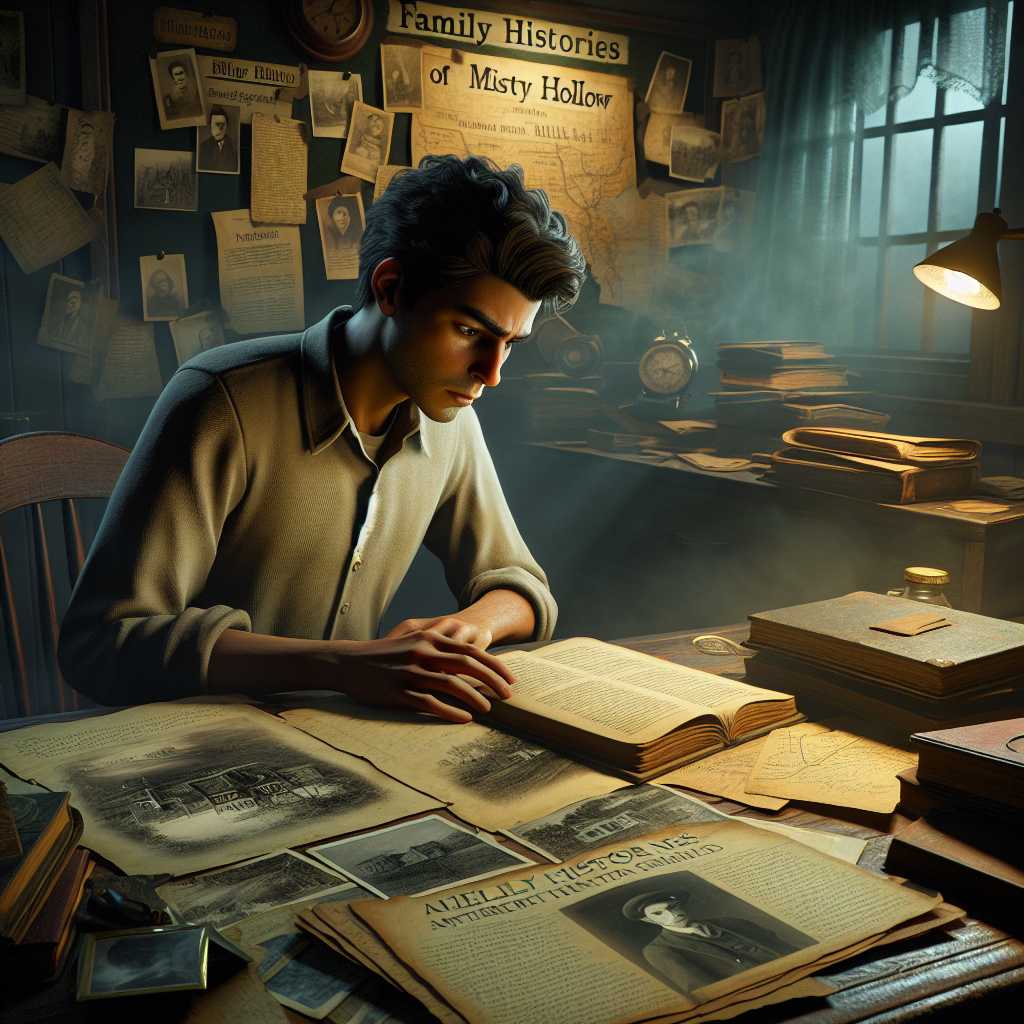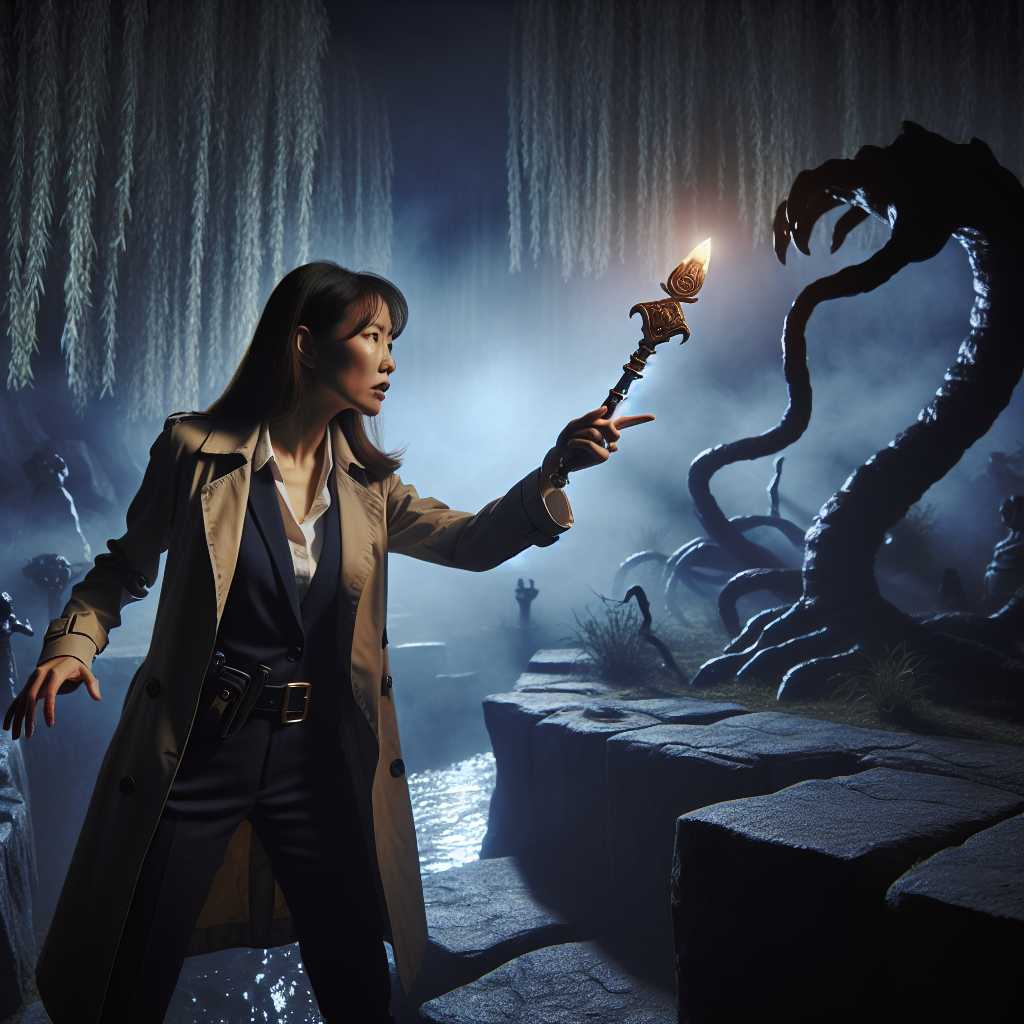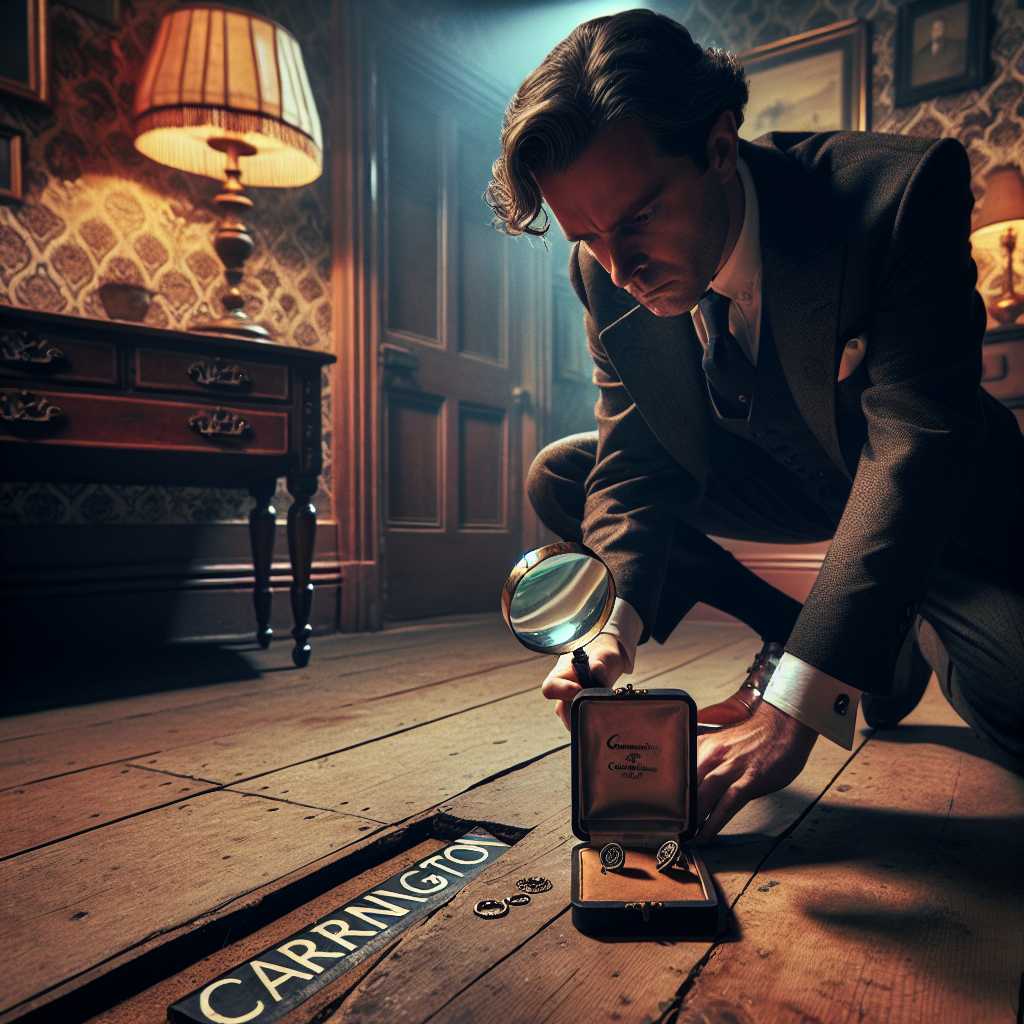
In the bustling heart of 1920s London, where cobblestone streets resonated with the clip-clop of horse hooves mingling with the roar of motorcars, stood the imposing figure of Detective Inspector Edmund Hayes. Known throughout Scotland Yard for his astute mind and unyielding dedication to justice, Hayes had a way of turning the most tangled mysteries into mere problems to be solved with a bit of logic and persistence.
On a fog-laden morning in late October, as the flickering gas lamps cast haloed pools of light on the damp streets, a case of peculiar interest found its way to Hayes's desk. The case involved the apparent theft—and more puzzlingly, the subsequent return—of an expensive set of silver cufflinks belonging to Lord Benjamin Carrington, a man of no small wealth or influence.
"Stolen and then returned, you say?" Hayes murmured, a skeptical eyebrow raised.
As the Inspector tapped a finger on the edge of his walnut desk, the messenger nodded solemnly, an assistant from Carrington’s estate. The young man's nervous gaze flickered across the room.
"Yes, sir. Taken right from his Lordship's study, and then mysteriously reappeared the next day, polished to a shine," he confirmed.
This detail was unusual enough to stir the curiosity of even the most seasoned detective.
Hayes, intrigued by the challenge, decided it was worth a personal visit. Clad in a dark overcoat and carrying a hat that had seen better days, he made his way to Carrington Manor, an opulent estate surrounded by neatly trimmed hedges and guards who patrolled its perimeter with unwavering eyes.
Inside the study, Lord Carrington received him with a hand that trembled ever so slightly with age. His eyes, however, gleamed with the wisdom of years.
"Detective Hayes," he greeted, voice seasoned by time and authority, "I trust you will find the truth in this strange affair."
The study was a room of grandeur, filled with mahogany bookshelves and dimly lit by a chandelier that appeared to be a century old. The air carried a scent of cigar smoke and old leather.
As Hayes examined the room, he questioned Lord Carrington about possible suspects. The list was surprisingly short, consisting of the household staff and Mr. Arthur Blanchard, Carrington's shrewd-seeming estate manager.
Hayes interviewed each of the staff in turn. Though nervous, none seemed overtly suspicious. As he turned his attention to the head butler, Mr. Evans, an impeccably dressed and articulate man of middle age, he noticed a slight hesitance in his responses.
"It is strange, indeed, sir," Evans remarked, his voice even and unflustered.
Hayes didn’t press but made a mental note to revisit this conversation. Sometimes the smallest hitch in a person’s demeanor unveiled the greatest secrets.
His attention then shifted to Arthur Blanchard. The man met Hayes with an air of seeming impatience, as if this entire affair were an inconvenient diversion from more pressing business.
"Detective," Blanchard intoned with a haughty air, "I cannot imagine why someone would take the cufflinks only to return them. Madness."
As they spoke, Hayes observed that Blanchard’s hands rarely strayed from the desk, clasped together in an iron grip.
Returning to the study, Hayes noticed something he had earlier missed—a small box beneath the cigar humidor, faint traces of fingerprint dust still on its edge. Using a kerchief, he gently opened it. The box was lined with velvet and fitted for the very silver cufflinks in question. But there was something else, a faint indentation in the velvet suggested an additional, smaller item had been placed here. Jewels perhaps?
It was time to return to the city. Hayes turned each detail over in his mind, pondering the peculiarities that did not quite fit. Why indeed take and return the cufflinks polished? And what was missing from the box?
The following day, Hayes returned to Carrington Manor with Inspector Harper, his trusted colleague. Together, they methodically revisited the details and the characters involved. Late that afternoon, as the first hints of twilight began to drape over the estate, Hayes asked Blanchard to join him in the study.
After a brief perusal of apparent pleasantries, Hayes fixed Blanchard with a keen look. "Mr. Blanchard, I wonder if you might help clear this small matter immediately," he said with a smile that seemed innocuous enough but held an edge.
Blanchard feigned nonchalance but gestured a willingness to assist.
"Indeed, perhaps you could explain why the silver cufflinks were taken at all, when any jeweler could confirm that real theft occurred with the missing stones that once accompanied them?"
Blanchard's face briefly reflected shock before he composed himself. He faltered, then laughed it off.
"A misunderstanding, surely, Detective," Blanchard said, his voice strained.
With a knowing glance at Harper, Hayes constructed his denouement with precision. "You see, the polishing was quite a giveaway. Only someone concerned with appearances and details would return them in such a state. And for the missing stones, well, one only needed to trace your recent transactions, some of which were curiously profitable for someone on a modest estate salary."
The game was up. Blanchard’s fabricated facade crumbled at Hayes’s accusations, leading to a confession of theft—not of the cufflinks themselves but of the real prize, the rare stones. He had planned to replace them with lesser imitations but panicked and returned the polished silver only as a ruse.
With Blanchard taken into custody, Hayes left the bewildered Carrington with words of reassurance and a knowing nod.
Later, as he walked back through the dimly lit streets of London, his figure blending with the mist rising from the Thames, he mused on the curious dance of crime and justice.
"Indeed," he thought, feeling the chill evening air on his face, "in the shadows of this great city, mysteries are but puzzles waiting to be solved."



